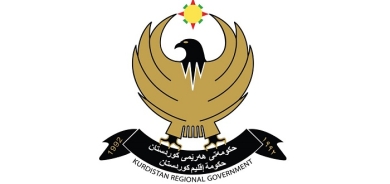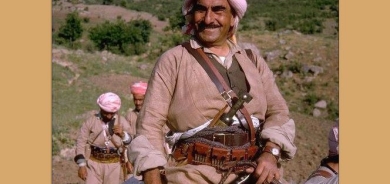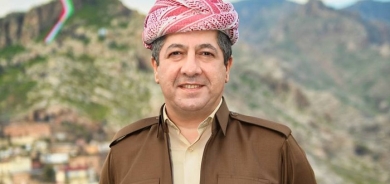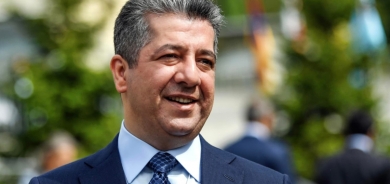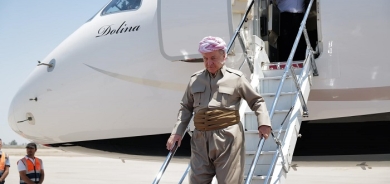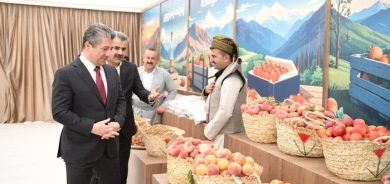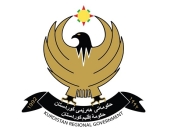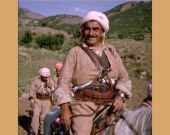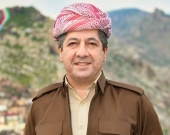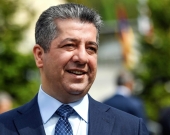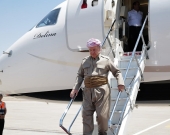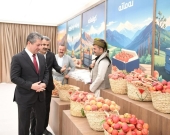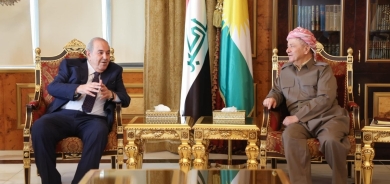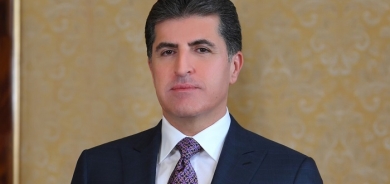The Government in Baghdad itself, Darkens the Future of Iraq

Regarding to resolving the problems between regional and central government’s within the framework of the constitution, in which the reason behind these problems is that the Iraqi government doesn’t comply with the constitution, in the continuous of his statements Professor Papazion added “Iraq’s constitution has always been a problem, because the constitution is written by people who hopefully understand the realities of the world and for the future. Unfortunately in implementing the constitution people tend to be quiet selfish and ignore the rules and the regulations. It is very hard to make people realize that the long range self-interest depends on the rule of law. Individuals can manipulate and try to get personal-advantage by ignoring the law, but in the long run no one gains. But it is terribly difficult to have individuals realize that the rule of law is going to enrich everyone eventually. They tend to want immediate gratifications, they grab this and they grab that. How you educate people is a difficult question”.
Professor Papazion, who has been studying the history of Middle Eastern and Armenian nations, is familiar with the truth that Iraq cannot stay unified unless the problem between the main components (Shiite, Sunni and Kurds) are resolved in more con-federalism way. But, what the Iraqis have underestimated is the danger of the Iraqi prime minister’s heading toward autocracy.
Problem between Erbil and Baghdad is the problem of all Iraqis.
The Kurds still had a hope to reach a solution with the Iraqi government through dialogue and peacefully until the Iraqi prime minister, unilaterally passed the oil and gas legislation in the ministerial council. But as the prime minister unveiled his autocratic moves, the Kurds spoke out and the problem appeared to be just because of oil and gas legislation, but the problems belong to all Iraqis which contains the Kurdish demands also. Regarding this issue Mr. Shwan M. Taha, the Iraqi parliament member on the Kurdistani bloc in the Iraqi parliament building responded to Gulan’s reporter as the following “As recently we’re aware of naming some subjects as problems, indeed these are not problems other than to be the demands of the Iraqi people. And also these demands are not just of Kurds, Barzani’s initiation which resulted in “Erbil’s agreement” in which every who participated agreed on the points so as to shape a broad based government, also within the framework of this agreement we elected parliament and presidential candidates, with having some other points unresolved yet. With the pass of the oil and gas law the problems unveiled, that is why people think that our most concerned issue is oil and gas law, which it is indeed just part of the problems. We had an important meeting with President Barzani and discussed the main problems word by word, and finalized Kurdish united position toward Iraqi government, the problems that have kept suspended are:
First: The problem of strategic policy committee.
Second: Shaping the security ministers.
Third: To set the authorities in the ministerial council according to an internal regulation of the council.
By demanding the setting of the authorities, we don’t mean to distribute the authorities among the political blocs. As the Kurdish bloc we have two major constitutional demands which are: first to urge the implementation of article 140, and the second one is the oil and gas legislation, which has been stuck in the ministerial council for over the last 5 years, and later on they passed the legislation imposing it on the parliament made us to take position. Because we just ask for the implementation of the constitution, the article 112 of the Iraqi constitution reads: The federal government, with the regions and provinces shall together formulate the necessary strategic policies in submitting the oil and gas legislation, because the revenue of these resources belongs to the whole Iraqis. In the Salahaddin meeting we reached the point to send a delegation to Baghdad so as to find a mechanism for resolving the suspended problems, not to go back to the first circle of negotiations and that is to have Baghdad, more than only “state of law”, prepared to implement the Erbil agreement points, which leads to the emergence of Kurdish final position. Otherwise, all the political blocs including Kurdish alliance have other choices in participating within the coalition government.
As the MP Shwan Mohammed mentioned the Kurdish main demand is urging the implementation of the article 140 which is related to the resolving of disputed territories. Regarding these we also interviewed Mss. Alaa Talabani, Iraqi parliament member on Kurdistani alliance, she further clarified the reason for the delay of implementation of the article 140 and responded as the following “ For the implementation of article 140 there are two committees; one executive inside the government and the other one legislative inside the parliament, in which I think the Iraqi government doesn’t want to undertake serious steps for implementing the article, that is why it has been stuck in the first place, except the compensation and bank instruments which have been given to the people. What we had planned for was to have them implemented within two years but unfortunately it is still in the first place and haven’t moved forward.
The second one which is the legislative committee and doesn’t have any authority except to observe the implementation of the points of article 140, it has been a month that this committee has been shaped. According to the agreement signed between Barzani and Maliki, this committee has to perform all its duties within two years, but as you see one year has passed and we have done nothing, and I don’t think that we will be able to do much in the 2nd year as well. That is; we have to think of other mechanisms in implementing article 140. For this, we can follow more diplomatic or international methods in resolving this problem, I think the article 140 was the best solution which Kurdish leadership wisely had thought of. But it is clear that the Iraqi consecutive governments do not want to implement it because there is a bigger political issue behind it. Obviously, they don’t want Kirkuk and other disputed territories to be returned back to Kurdistan region. They are even afraid of performing statistics, the Kirkuk provincial council election is part of their fear also. Because they know statistics and provincial elections will change the situation completely”
Risks of autocracy and the future of Iraq
The question that we should always focus on is “where to the returning to autocracy and dictatorship and violation of the agreements leads Iraq?” or, the willing of autocracy of the Iraqi prime minister is something that only Kurds are talking about? Or, Iraqi government has undertaken serious steps toward autocracy and needs to be limited? We interviewed Adeed Dawisha, Professor of political science in Miami university, who is Iraqi and despite he has many books about Iraq, he also follows the situation of Iraq closely, regarding democracy being at risk in Iraq and the wish of Iraqi prime minister for autocracy, in an exclusive interview Gulan Magazine he responded as "On the question of democracy in Iraq, yes I actually do worry, I think the present political system in Iraq is in complete deadlock. I think that the prime minister appropriating for himself more and more power at the expense of other groups and other institutions. I think that maybe the presence of the Americans is a dependent force, in other words; that is a force at least keeping the lid on more and more dictatorial and authoritarian moves by the prime minister. So as the Americans go, then the one outside force of the country that the prime minister knows is for democracy will have disappeared and that might be the problem for the chances of democracy in Iraq, now I understand what you’re asking. Because at the moment there are these two alternatives, neither of them is particularly good for Iraq; either Maliki concentrates more and more powers in his hands leading to more and more authoritarian and dictatorial rule, or on the other hand; the other groups, Kurds, Shiite, the other parties like the Ayad Allawi’s party are going to basically create a deadlocked situation that might end up in some violence, neither of these two conclusions are particularly good for Iraq or for the prospect of democracy. And either of these two scenarios I mentioned pertains, honestly the one region in Iraq that has freedom to act unilaterally is the Northern Region, so there will be a very good incentive for the Kurds to say " the whole place is basically decaying and falling to peaces therefore we are not going to be part of that", this might be the first step of unilateral declaration of something more than autonomy, maybe declaration of independence, if the Kurds would go that loud, again if you think that the central government has the power to force the Kurds not to do that, the Iraqi army if it can't deal with a few terrorist groups of Al-Qaeda, then they will not be able to deal with more and organized much better armed Peshmarga forces, so the situation is really deteriorate to either dictatorship or deadlock among the groups, I can very long see the Kurds saying "enough is enough, we are out of here, we're not going to be part of this".
And my message to Iraqi people is to try to do two things, first of all try to work out your differences, secondly to be inclusive. I mean people have to understand that democracy is not a system that you choose to further your interest. Democracy is a system to have as many people and as many groups regardless how different they are, to be included in the political system, to give others a voice, that is the essence of democracy. Unfortunately in Iraq what is happening today is democracy is seen and simply a road to getting power and holding to power and that unfortunately, I'm sorry to say, but does not go too well for the future of democracy and for the unity of Iraq".
Regarding the withdrawing of US forces from Iraq and the probability of the dangers in security situation to come about, Professor Dawisha emphasized the deep pain and responded as "I think that there is a very good chance that the withdrawal of American forces will lead to some deterioration in the security situation in Iraq, I'm personally not convinced that the Iraqi security forces, especially the forces that the government has under authority, can't actually combat terrorism and act of against that come either from Al-Qaeda or either a terrorist groups, indeed some of the Militias primarily Shiita in Iraq. I really don't think that the Iraqi government at the moment can actually control the security situation in Iraq, so I'm worried there will be deterioration.”
Translated by: Sheban Ferhad

